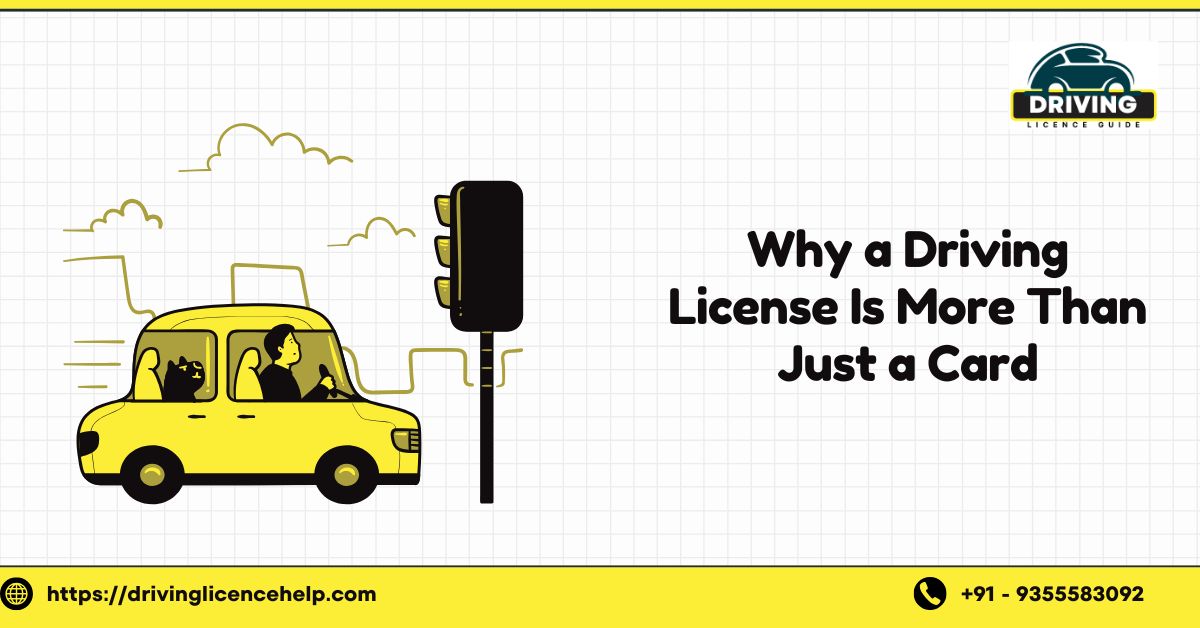Introduction
If you're thinking about applying for a new Driving Licence or renewing your current one in 2025, there are some significant changes you need to know. The Ministry of Road Transport and Highways (MoRTH) has rolled out several reforms designed to make the process faster, safer, and more transparent. From online learner’s license tests to exemptions from RTO driving tests for candidates trained at certified centers, the updates aim to reduce hassle while promoting road safety. Knowing these new rules will help you stay compliant and make your license application experience smoother and more efficient.
No Driving Test at RTO for Some Applicants
One of the biggest updates in 2025 is that you might not need to appear for a driving test at the RTO (Regional Transport Office) anymore — if you’ve completed training at an authorized driving school.
What’s the new rule?
Applicants who complete their training at a government-approved driving school no longer need to take the traditional driving test at the RTO. This update simplifies the licensing process while ensuring that drivers are well-trained by certified professionals. It not only speeds up the procedure for learners but also promotes higher driving standards and awareness about road safety. Additionally, it eases the workload on RTO offices, allowing them to function more efficiently.
Validity Period & Age-Based Restrictions Updated
The validity of a driving license now depends more on your age. Here’s how it works in 2025:
- For applicants under 40 years – License valid for 20 years or until age 40, whichever comes first.
- Age 40–50 – Valid for 10 years.
- Age 50–55 – Valid till age 60.
- Above 55 years – Valid for 5 years.
This change ensures that health and fitness are better monitored for older drivers, which ultimately promotes safer roads.
Mandatory Driving Certificate for Heavy Vehicles
If you're applying for a license to drive commercial or heavy vehicles, it's now mandatory to submit a certificate from a government-recognized training center. This regulation is particularly crucial for truck and bus drivers, delivery vehicle operators, and those working in logistics and transportation sectors. The primary goal is to enhance road safety by ensuring that drivers handling large or heavy-duty vehicles receive proper, standardized training. With better-trained drivers on the road, the chances of accidents due to lack of skill or awareness are significantly reduced, leading to safer travel and transport systems across the country.
Learner’s License Test Goes Online
You can now take your Learner’s License test from the comfort of your home in many states, thanks to the introduction of online testing systems by the Ministry of Road Transport and Highways. The process is simple — register on the official portal, schedule your test, and appear for it through a webcam-enabled device. This facility is currently available for non-commercial vehicle categories and requires proper Aadhaar verification for authentication. It’s a major convenience boost, especially for students, homemakers, and busy professionals, making the entire process more accessible and time-efficient.
Unified National Registry of Driving Licenses
A new centralized database has been implemented to curb duplication and fraud in the driving license system. By linking each license to the applicant’s Aadhaar number, authorities can now ensure that no individual holds multiple or fake licenses. This national-level integration not only eliminates the chances of forged credentials but also makes background verification faster and more reliable. Additionally, it simplifies processes like license renewal, address updates, or state-to-state transfers, making the entire system more transparent, secure, and user-friendly.
Stricter Penalties for Fake Documents
Using fake documents to apply for a driving license can lead to serious consequences under the amended Motor Vehicles Act. Authorities are taking strict action against such offenses to uphold the integrity of the licensing system. If you're caught submitting forged paperwork, you could face heavy fines, suspension or cancellation of your license, and even legal action that may include imprisonment. The government’s crackdown on license-related fraud aims to ensure that only genuine and qualified drivers are allowed on the roads, ultimately promoting safer driving conditions for everyone.
Driving License Linked with Vehicle Fitness
For commercial drivers, holding a valid driving license is now more crucial than ever, as it's directly linked to the fitness certificate of their vehicle. This regulatory change ensures a dual check — not only must the driver be qualified and authorized, but the vehicle must also meet road safety and maintenance standards. By tying the two together, authorities aim to promote greater accountability, reduce accidents, and enhance the overall safety of commercial transportation. This move also streamlines enforcement, making it easier to track non-compliance and encourage timely renewals and inspections.
Faster Renewal & Smart Card Format
Renewing your driving license has become more convenient than ever, with most new licenses now issued in a smart card format. This compact, credit card-sized license comes embedded with a secure chip that stores all your essential details digitally. It’s easy to carry, resistant to wear and tear, and tamper-proof, making it a durable and reliable identification tool. Traffic officers can quickly verify your information using digital scanners, speeding up checks and reducing paperwork.
Suggested read- How to Check Driving Licence Status in India
Conclusion
India’s driving license rules have seen major updates in 2025, focusing on digital access and road safety. Applicants from approved driving schools can now skip the RTO test, and learner’s license tests can be taken online. License validity is now age-based, and commercial drivers must be certified. With stricter documentation and centralized verification, the system is more efficient and transparent. Staying updated ensures a smooth, safe driving experience.





Comments